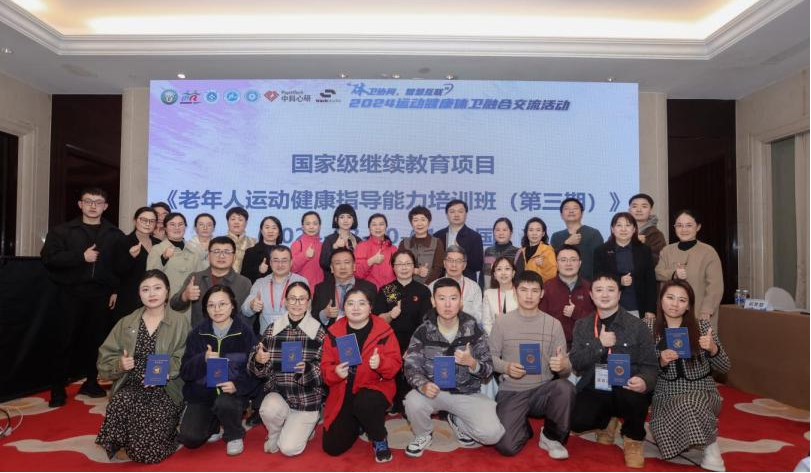"Physical and Health Cooperation, Smart Interconnection" 2024 Sports Health and health integration exchange activity Documentary 3: The national continuing education project "Elderly sports health Guidance Ability Training Course (the third period)" was successfully held
From November 23 to 24, 2024, the national continuing education project "Exercise Health Guidance Ability Training Course for the Elderly (the third phase)" was held in Hangzhou, Zhejiang Province. The training was guided by the Chinese Geriatric Society, sponsored by the Sports Health Branch of the Chinese Geriatric Society, Hangzhou Sports Bureau, organized by the International Exchange Working Committee of the Chinese Geriatric Society, the First Affiliated Hospital of Zhejiang University School of Medicine, and Hangzhou Chenjinglun Sports School. National Clinical Medical Research Center for Geriatric Diseases (West China Hospital, Sichuan University) and Chinese Journal of Clinical Health Care. The training forms were divided into online and offline. Offline, 67 representatives from hospitals and primary medical institutions, as well as sports and rehabilitation work participated in the two-day training, and online, a total of 1,695 people participated. This training course has more than 20 well-known experts and scholars from the fields of geriatrics, general medicine, rehabilitation, sports and other fields to promote the high-quality development of aging health as the goal, focusing on the theoretical deepening and practical innovation in the field of sports health management for the elderly. From the scientific design of the course content to the implementation of the whole process of training, it has comprehensively improved the professional ability of the participants in the elderly health guidance, disease prevention and rehabilitation management, and laid a solid foundation for the healthy aging work in the new era. The latest research results in the field of geriatrics and exercise rehabilitation were shared, the technical methods of combining exercise and geriatrics were discussed in depth, and the prospects and directions for the development of geriatrics and health services and professional personnel training industries were proposed, which provided a basis for the national formulation of relevant policies.
On the morning of November 23, Professor Dong Bilong, President of the Sports Health Branch of the Chinese Geriatrics Society and Professor of West China Hospital of Sichuan University, first expressed her heartfelt thanks to all the leaders and experts who cared for and supported the training course, and warmly welcomed all the representatives attending. Actively respond to the outline of the "Healthy China 2030" plan and the "National Fitness Plan (2021-2025)", explore the integration of physical and health to promote the active health of all people, and open cooperation with top experts in related medical fields, and sincerely hope that experts and students can deepen scientific research cooperation in the field of geriatrics through this training course. Through physical and health integration and innovation, jointly explore ways and methods to solve the problems of elderly diseases, better improve the service ability of geriatrics, train interdisciplinary talents in different fields, and work together to promote the construction of human health community and safeguard a healthy future.
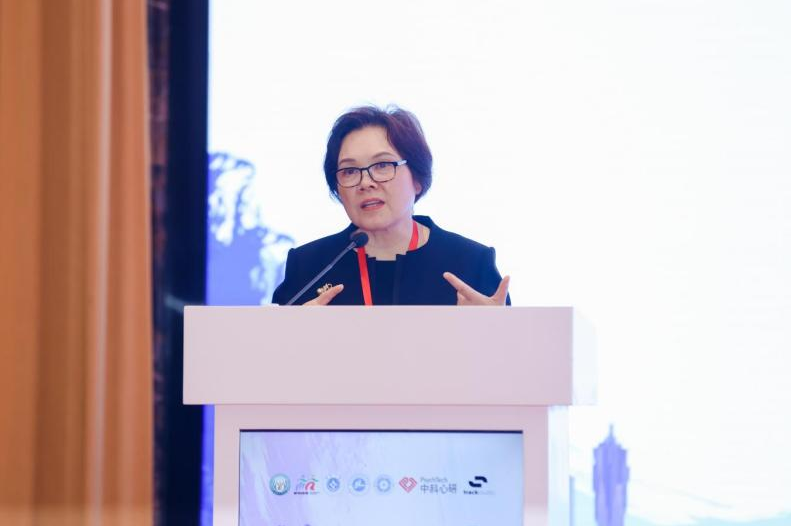
The training course was divided into four phases.
On the morning of November 23, focusing on the elderly exercise as the theme, Professor Dong Bilong, president of the Sports Health Branch of the Chinese Geriatric Society and director of the West China Hospital of Sichuan University, made exchanges and hosted discussions on topics such as "pain points and suggestions for elderly exercise prescriptions", "geriatric medicine discipline construction" and "the results and efficacy of elderly exercise". In response to the problem of the elderly movement, Professor Dong Bilong pointed out that with the acceleration of the aging process in China, the proportion of people aged 65 and above has reached more than 14%, a total of nearly 300 million. In order to deal with the health problems of the elderly, The State Council put forward the concept of "active aging", emphasizing that the elderly have access to medicine and healthy elderly care through a health support system and multi-level elderly care services, and proposed the "9073" model: 90% home care, 7% community care, and 3% institutional care. This policy system provides important support for aging management in our country. In this context, "exercise is the best anti-aging drug" has gradually become a consensus. Studies have shown that moderate exercise can not only delay aging, but also improve chronic diseases in the elderly, improve cognitive function and social skills. Jiangsu and other places have explored the "combination of physical and medical" pension model, integrating sports into elderly health management.
The training on the afternoon of November 23 focused on the comprehensive abilities of the elderly. Chen Zheng, Vice President of the Chinese Society of Geriatrics, Professor Wu Xueping from Shanghai Sport University, Professor Liu Xiangyun from Shanghai Sport University, Professor Wang Zhengzhen, member of the Sports Medicine Branch of the Chinese Society of Sport Science, Professor Yang Yanyan, Secretary of the Party Branch of Rehabilitation Medicine Department of Peking University Third Hospital, and Professor Huang Liping from Tianjin Institute of Sport respectively discussed "Comprehensive Assessment of the elderly and Healthy aging" and "exercise for the elderly" The report was titled "Key points of Management program Design", "Three high exercise Program Formulation", "cardiorespiratory endurance assessment and aerobic exercise intervention for the elderly", "Screening and implementation points before exercise for the elderly", "Exercise risk screening and physical fitness assessment" and "How to improve the compliance of the elderly in community and home exercise".
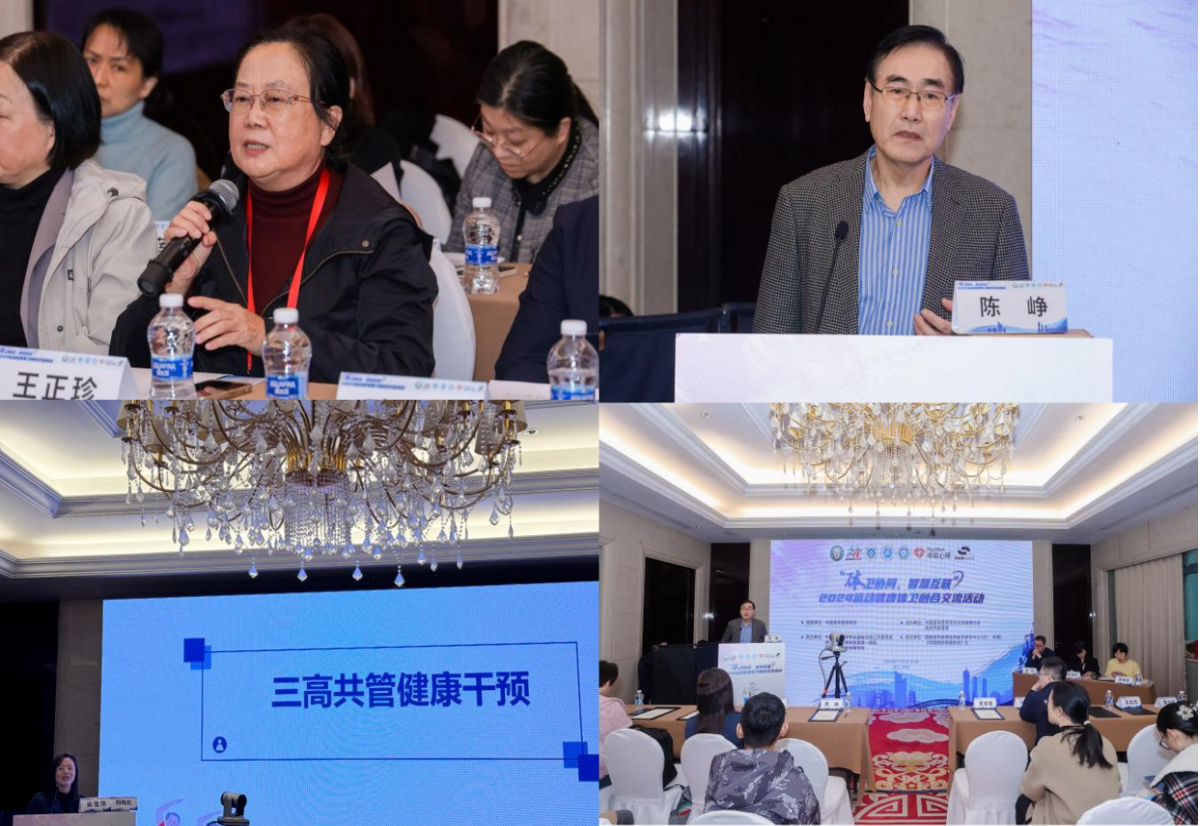
Under the chairmanship of Xue Liang, Director of the National Fitness Research Center of Zhejiang Sports Science Research Institute, Professor Zhang Haiyan of the geriatric Medicine Department of the First Affiliated Hospital of China Medical University, and Doctor Zou Yanhui of the geriatric Department of the People's Hospital of Inner Mongolia Autonomous Region, a topic on the comprehensive exercise ability of the elderly was carried out in depth. In the topic discussion, focusing on the core issues such as comprehensive assessment of old age and healthy aging, the experts provided the students with in-depth learning and practice opportunities through the explanation of medical records and practical exercises. Case studies throughout the course emphasized the key role of multidisciplinary cooperation in geriatric health management, helped students establish a more comprehensive diagnosis and treatment thinking, especially in the practical application of comprehensive geriatric assessment (CGA) and sports management, and demonstrated the results of the combination of science and practice. In terms of the design of sports management program, the students are taught how to make personalized sports intervention plan with the "three high" group as the starting point. In this case, participants learned how to combine cardiorespiratory endurance assessment, functional testing and exercise risk screening to optimize exercise programs and ensure scientific and safe exercise. The practical exercise session covers the whole process from screening to physical fitness assessment, so that students can intuitively understand the specific implementation of the aging exercise program. Through case discussions, participants learned how to apply the assessment results to the development of personalized treatment plans to help achieve the goal of healthy aging.
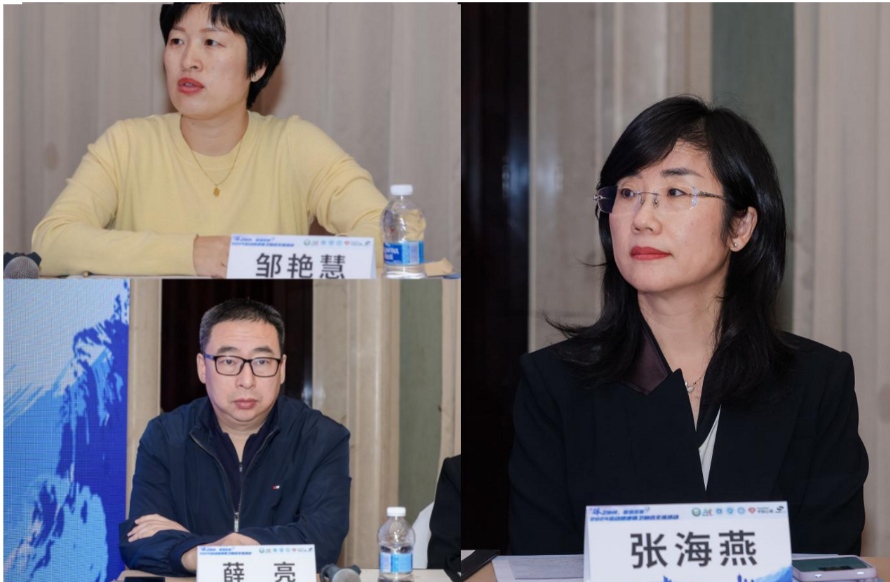
The theme of the training on the morning of November 24 was cardiopulmonary function and practical exercise training for the elderly, which was presided over by Professor Zhang Xin 'an, Dean of the School of Sports Health of Shenyang Institute of Physical Education, Lu Cuilian, director of geriatric Medicine of Aerospace Center Hospital, and Jing Ning, standing member and deputy general director of the Sports Health Branch of the Chinese Geriatric Society. Professor Qiu Junqiang, College of Sports and Human Science, Beijing Sport University, gave practical instruction on "Cardiopulmonary Endurance Assessment/Aerobic exercise for the elderly", so that the students could master the cardiopulmonary function ability of the elderly and the correct assessment method; Dr. Ma Jing, Department of Cardiology, PLA General Hospital, shared valuable experience on "Elderly cardiopulmonary exercise test Interpretation and exercise points"; Li Xuemei, professor of Sports Medicine and Rehabilitation from Beijing Sport University, elaborated on the key points and importance of "Evaluation of muscle strength, explosive power, flexibility and exercise intervention design for the elderly". Professor Li Xuemei started with sports interactive games and led the students to practice sports actions with interesting and understandable language, feel the correct direction of joints during sports and the key points of force, and learn to design different sports programs according to different age groups.
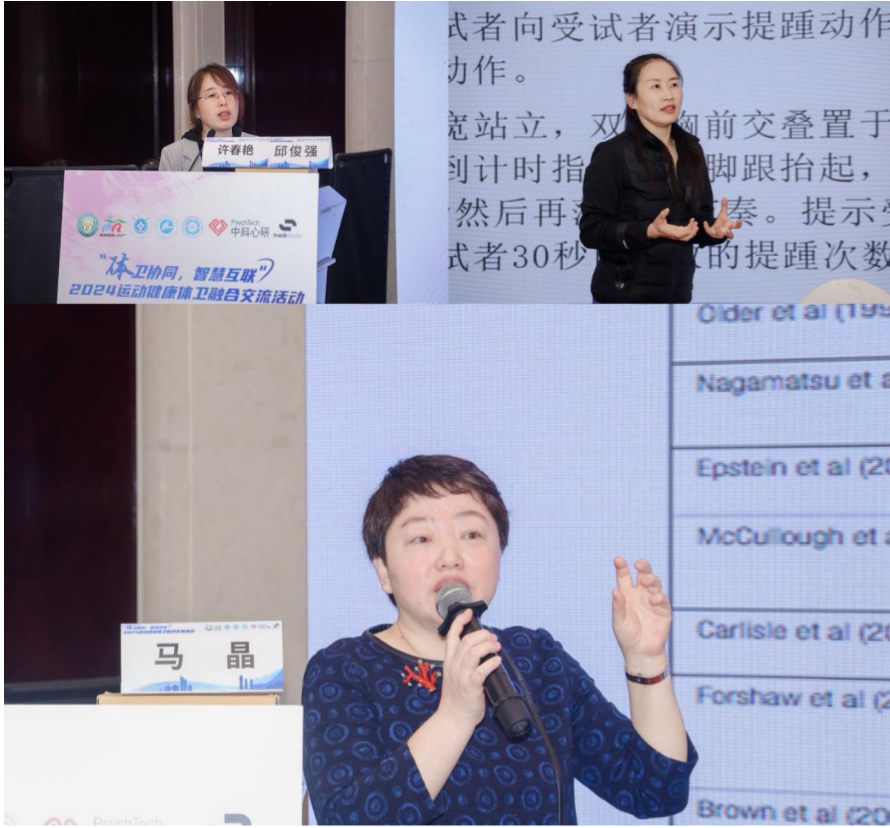
On the afternoon of November 24, the theme of the training was health exercise management for the elderly, which was presided over by Professor Zhang Qin, Vice president of the Sports Health Branch of the Chinese Geriatric Society, and Wu Xiaochu, National Clinical Medical Research Center for Geriatric Diseases (West China Hospital of Sichuan University). Hu Yixin, deputy director of the Fourth Department of Health Care of the Second Medical Center of the PLA General Hospital, gave an in-depth explanation on "Exercise health management for the elderly based on exercise physiology - sarcopenia - asthenia comprehensive Assessment and exercise intervention practice"; Rong Xiangjiang, professor of Sports Rehabilitation Department of Capital Institute of Physical Education, shared his valuable experience on "Fall Risk Assessment and Exercise Intervention Points for the Elderly"; Qiu Jihong from Shanghai Sport University led the students to practice "Neuromuscular training for the elderly" and shared the training points; Professor Wang Lin, deputy director of the Graduate Department of Shanghai Sport University, gave a professional interpretation of "Body composition assessment and weight management".
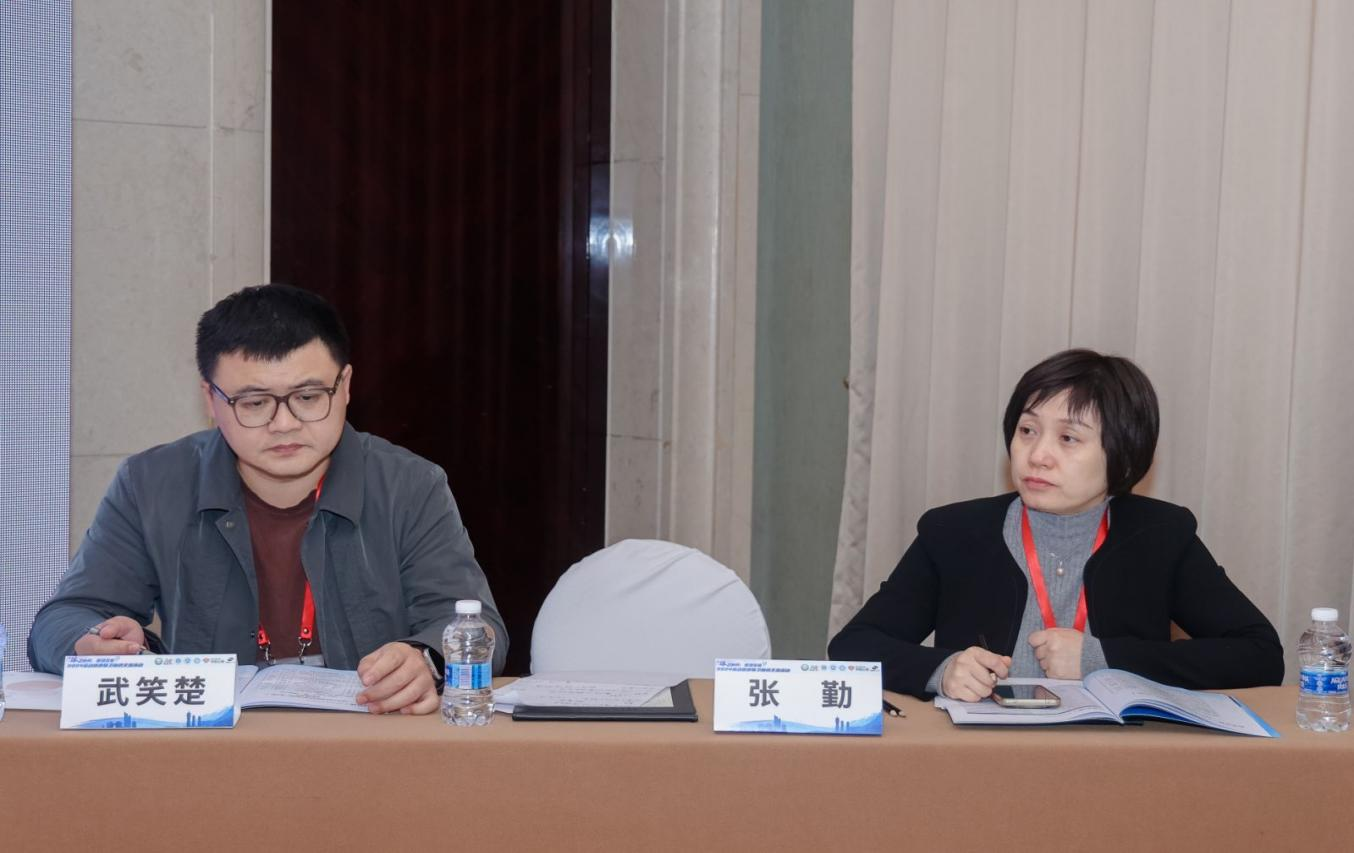

The training ended successfully. Professor Peng Lili, vice president of Hangzhou Chenjinglun Sports Institute, made a summary and awarded the completion certificate to the student representatives.
Hu Yixin, director of the International Exchange Working Committee of the Chinese Geriatric Society, said that this training course relies on the national "Healthy China 2030" strategy and related policies on aging health, and is a positive response of the Chinese Geriatric Society to the spirit of documents such as "Opinions on Strengthening physical education for the Elderly". It aims to implement the spirit of important policy documents such as the Opinions of the CPC Central Committee and The State Council on Strengthening the Work on Aging in the New Era, the National Medium and Long-Term Plan for Actively Responding to Population Aging, and the Plan for the Development of the National Aging Cause and the Elderly Service System in the 14th Five-Year Plan, and is committed to cultivating the clinical skills of the backbone of the interdisciplinary geriatric medicine team. Actively respond to the integrated development of medical care, sports, education and other industries, and actively explore important means of building a healthy aging integration system. The training course has been held for 3 periods, which has been praised and recognized by many people from all walks of life in medicine and sports, and many innovative sports health management models for the elderly have emerged in this training course. The participants generally feedback that they have gained a lot, and will actively use their knowledge to help upgrade regional aging health services, and contribute to promoting the construction of healthy China and realizing "quality longevity" for all elderly people.
